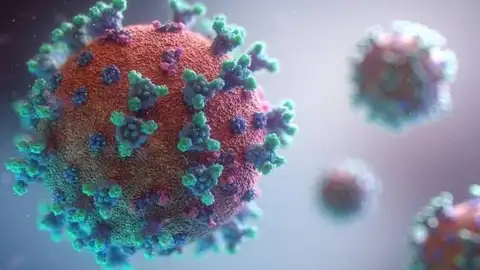The JN.1 variant of the COVID-19 virus, responsible for a surge in cases in the US since September, has now made its presence known in India. Discovered during routine surveillance in Kerala, the variant is currently being closely observed. As per a report, approximately 15 cases of the JN.1 variant have been identified in samples collected from Goa.
What is JN.1 Variant?
JN.1 is the successor of BA.2.86, another descendant of the Omicron variant that emerged in the US the previous summer. According to the CDC, these two variants are nearly indistinguishable, except for a solitary variance in their spike proteins—a crucial component enabling the virus to infiltrate human cells.

The rising prevalence of JN.1 in infections suggests that it may either be more transmissible or possess enhanced capabilities in evading our body’s immune defences compared to previous iterations of the virus, as indicated by the CDC. However, there is currently no evidence suggesting that it leads to more severe illness than other viral strains, even though it might increase transmission. The CDC notes that primary symptoms will likely mirror those associated with earlier variants.
What are the symptoms?
- Persistent Cough: A lingering cough is frequently observed as a common symptom.
- Cold Symptoms: Characteristics reminiscent of a common cold, such as a runny or congested nose, may manifest.
- Throat Discomfort: Reports indicate the presence of a sore throat or general discomfort in the throat.
- Headache: Those infected with the JN.1 variant may experience headaches as part of the symptom profile.
- Gastrointestinal Symptoms: Gastrointestinal symptoms may be encountered, including loose motions (diarrhoea).
- Mild Breathlessness: Some individuals may intermittently experience mild breathlessness during the symptomatic presentation.
JN.1 Variant in Other Countries
According to GISAID data, out of 15,416 positive COVID-19 cases sampled across 56 countries, 43% (6,682) have tested positive for BA.2.86 or its sub-variants, including JN.1.
At least 35 nations have reported the presence of the variant to GISAID. Spain, Singapore, Brazil, Belgium, Netherlands, and Malaysia have identified the variant in over 50% of their positive samples. Spain and Singapore, in particular, reported that nearly two-thirds of all sequenced samples were positive for this variant.
)
The CDC predicts a continued increase in JN.1’s proportion among Sars-CoV-2 genomic sequences in the United States. According to CDC data, about a quarter of all positive samples being sequenced in the US are returning positive for JN.1.
Singapore attributes the JN.1 variant to a significant surge in COVID-19 cases. The average daily new infections in the city-state have surged from 1,532 cases two weeks ago to 8,006 cases a day for the week ending December 9, prompting the reintroduction of mandatory mask usage in crowded places, especially indoors.
India has also experienced a recent uptick in infection numbers, with an average of 252 new infections reported across the country in the week ending December 17, compared to 125 a week ago and 59 the week before. However, the average daily death toll has remained constant. (0.9)

As we mark four years of the global pandemic and witness the impact of the JN.1 variant, it’s crucial not to underestimate the evolving threat. Whether serious or not, maintaining vigilance and adhering to preventive measures remains paramount in navigating the complexities of the ongoing situation.











